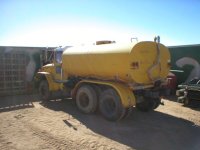After considerable research, the only thing I am allowed to use, since we live on porous and sand/gravel soils hills that leach very, very quickly down to the 11,000 acre lake and since we are in the watershed, is a beet juice product. Absolutely no oil, petroleum based products are allowed, and for good reason.
Similar, I think, to what RimGuard is made from, although I am not 100% sure. Anyhow, this new product is also used for ice melting in enviro friendly applications and also seems to be much less corrosive to vehicles, a major issue when using many products either for dust control or road ice melting.
It is my understanding that this product is very difficult for a private party to obtain. I, for one, would love to know much more about this.
